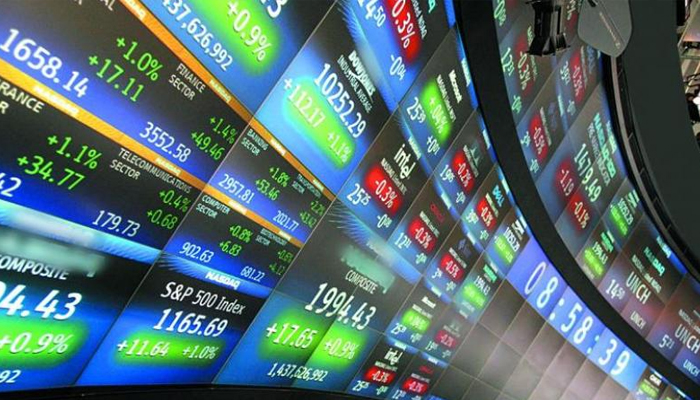TRENDING TAGS :
Global stocks rally on hopes for economic improvement
Global shares rallied Tuesday after the US Federal Reserve moved to support markets battered by the coronavirus pandemic and amid some upbeat economic data.
Tokyo- Global shares rallied Tuesday after the US Federal Reserve moved to support markets battered by the coronavirus pandemic and amid some upbeat economic data.
The Fed announced Monday that it will buy individual corporate bonds as part of its previously announced program to keep lending markets running smoothly and allow big employers to get access to cash.
The move was the latest reminder the Fed is doing everything it can to help support markets, analysts said. Central banks have repeatedly come to the economy's rescue over the years, and it was huge, unprecedented moves by the Fed earlier this year that helped put a halt to the S&P 500's nearly 34% sell-off on worries about the recession coming out of the coronavirus pandemic.
Germany's DAX was up 2.4% at 12,268 after the ZEW index of investors' economic confidence rose for a third consecutive month, with financial professionals' assessment of the current economic situation in Germany improving for the first time since January.
France's CAC 40 gained 2.5% to 4,937. Britain's FTSE 100 gained 2.5% as well, to 6,217 after data showed the unemployment rate remained stable - though analysts expect a surge later this year when furlough schemes are phased out.
U.S. shares were also set for gains, with Dow futures up 1.7% and S&P 500 futures gaining 1.2%.
In case the generosity of the Fed was in any doubt, it is not. Global equity markets are recovering quickly, after the Fed announcement, Stephen Innes, chief global markets strategist at AxiCorp, said in a report.
Meanwhile, new US figures are expected to show Tuesday that retail purchases climbed 9% from April to May, according to economists surveyed by the data provider FactSet. This would mark a partial comeback after a 16.4% month-to-month plunge in April, the worst such drop on records going back to 1992, and an 8.3% drop in March.
Japan's benchmark Nikkei 225 surged 4.9% to finish at 22,582.21 after the central bank promised more funding for corporate financing, though its minus 0.1% benchmark interest rate and ultra-lax monetary stance remained unchanged.
South Korea's Kospi gained 5.3% to 2,138.05, while Australia's S&P/ASX 200 jumped 3.9% to 5,942.30. Hong Kong's Hang Seng added 2.4% to 24,344.09. The Shanghai Composite edged up 1.4% to 2,931.75.
The Bank of Japan expanded its Special Program, including purchases of commercial paper and corporate bonds and its lending programs for commercial banks, to 110 trillion yen from 75 trillion yen (USD 1.02 trillion from USD 690 billion).
In a statement, the Bank of Japan said the economy is likely to remain in a severe situation for the time being due to the impact of COVID-19," though it expects economic activity to resume gradually.
Gov. Haruhiko Kuroda told reporters that recovery could come in the latter part of the year if the effects of the pandemic are mitigated. He stressed that meeting participants agreed the bank should take extra action if needed.
Flexibility is key because of uncertainties about the virus, he added.
We don't know yet when a treatment or vaccine can be developed or become available, Kuroda said.
The number of COVID-19 cases is still growing around the world. Governments are relaxing lockdowns in hopes of nursing their devastated economies back to life, but without a vaccine, the reopenings could bring on further waves of COVID-19 deaths.
More importantly and something that seems to get lost in every rebound narrative is whether consumer behavior turns more cautious and inhibits a recovery in spending," said Innes of AxiCorp.
Benchmark US crude rose 71 cents to 37.83 a barrel. It rose 86 cents to 37.12 a barrel on Monday. Brent crude, the international standard, added 85 cents to 40.57 a barrel.
The dollar slipped to 107.27 Japanese yen from 107.38 yen on Monday. The euro cost USD 1.1305, down from USD 1.1322.
(AP)



